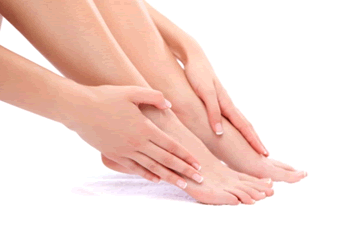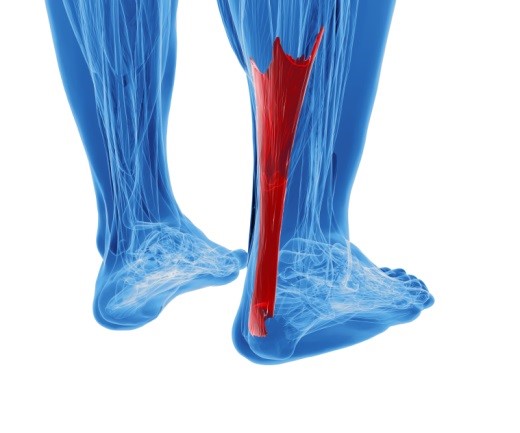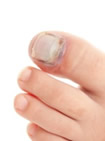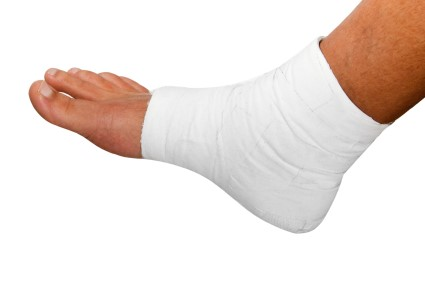Blog
DIY Recipes for Taking Care of Your Feet at Home
 If you have some extra time on your hands but don’t want to go out for a pedicure, you can try applying some DIY at-home foot scrubs. Clean your feet first by soaking them in warm water filled with salt and lemon. This’ll help get rid of dead skin and dirt. Create a cooling scrub, using olive oil, tea tree oil, peppermint oil, and salt. Mashing bananas to create a banana mash to slather your feet in will also leave your skin feeling smooth. You can also create a moisturizer for your feet by combining vaseline, coconut oil, tea tree oil, and lemon juice.
If you have some extra time on your hands but don’t want to go out for a pedicure, you can try applying some DIY at-home foot scrubs. Clean your feet first by soaking them in warm water filled with salt and lemon. This’ll help get rid of dead skin and dirt. Create a cooling scrub, using olive oil, tea tree oil, peppermint oil, and salt. Mashing bananas to create a banana mash to slather your feet in will also leave your skin feeling smooth. You can also create a moisturizer for your feet by combining vaseline, coconut oil, tea tree oil, and lemon juice.
Every day foot care is very important, especially for those that are lacking the proper foot care resources. For more information about everyday foot care, consult with Dr. Michael E. Newman of Pennsylvania. Our doctor will assist you with all of your foot and ankle needs.
Every Day Foot Care
Often, people take care of their bodies, face and hair more so than they do for their feet. But the feet are a very important aspect of our bodies, and one that we should pay more attention to. After all, without our feet, we would not be able to perform most daily tasks. It is best to check your feet regularly to make sure there are no new bruises or cuts that you may not have noticed before, for example.
For dry feet, moisturizer can easily be a remedy and can be applied as often as necessary to the affected areas. Wearing shoes that fit well can also help you maintain good foot health, as well as making it easier to walk and do daily activities without the stress or pain of ill-fitting shoes, high heels, or even flip flops.
Also, wearing clean socks with closed shoes is important to ensure that sweat and bacteria do not accumulate within the shoe. Clean socks help to prevent athlete’s foot, fungi problems, bad odors, and can absorb sweat.
If you have any questions please feel free to contact our offices located in Plymouth Meeting and Ambler, PA. We offer the newest diagnostic tools and technology to treat your foot and ankle needs.
Minnesota Vikings Forward Phil Loadholt Recovering from Achilles Tendon Injury
 Minnesota Vikings’ forward, Phil Loadholt, has been readily rehabbing his Achilles tendon injury and specialists believe he will be ready to play by spring. While this is the last year of his contract, the Vikings could decide to release Loadholt by June 1st due to the injury. With this in mind, the 30 year old player is not focusing on his contract status, but on keeping his lower extremities happy and healthy instead.
Minnesota Vikings’ forward, Phil Loadholt, has been readily rehabbing his Achilles tendon injury and specialists believe he will be ready to play by spring. While this is the last year of his contract, the Vikings could decide to release Loadholt by June 1st due to the injury. With this in mind, the 30 year old player is not focusing on his contract status, but on keeping his lower extremities happy and healthy instead.
Achilles tendon injuries need immediate attention to avoid future complications. If you have any concerns about your feet consult with Dr. Michael E. Newman of Pennsylvania. Our doctor will assist you with all of your foot and ankle needs.
What is the Achilles Tendon?
The Achilles tendon is a tendon that connects the lower leg muscles and calf to the heel bone of the foot. It is the strongest tendon in the human body and is essential for making movement possible. Because this tendon is such an integral part of the body, any injuries to it can cause severe difficulties and should immediately be presented to a doctor.
What are the symptoms of an Achilles Tendon Injury?
There are various types of injuries that can affect the Achilles tendon. The two most common are Achilles tendinitis and ruptures of the tendon.
Achilles Tendinitis Symptoms
- Inflammation
- Dull to Severe Pain
- Increased blood flow to the tendon
- Thickening of the tendon
Rupture Symptoms
- Extreme pain and swelling in the foot
- Snapping sensation
- Total immobility
Treatment and Prevention
Achilles tendon injuries are diagnosed by a thorough physical evaluation, which can include an MRI. Treatment involves rest, physical therapy, and in some cases, surgery. However, various preventative measures can be taken to avoid these injuries, such as:
- Thorough stretching of the tendon before and after exercise
- Strengthening exercises like calf raises, squats, leg curls, leg extensions, leg raises, lunges, and leg presses
If unable to immediately see your podiatrist, remember to Rest, Ice, Compress, and Elevate until then.
If you have any questions please feel free to contact our offices located in Plymouth Meeting and Ambler, PA. We offer the newest diagnostic tools and technology to treat your foot and ankle needs.
Beau Falloon Out with Broken Toe
 Leeds Rhinos lost hooker player Beau Falloon as he suffered a broken toe injury while training. Falloon is unable to play in the First Utility Super League opener game against the Warrington Wolves as he had tests taken and will be on recovery. The status of Falloon’s injury was predicted not to be long-term. Falloon was set to play against the Featherstone Rovers before sustaining his injury.
Leeds Rhinos lost hooker player Beau Falloon as he suffered a broken toe injury while training. Falloon is unable to play in the First Utility Super League opener game against the Warrington Wolves as he had tests taken and will be on recovery. The status of Falloon’s injury was predicted not to be long-term. Falloon was set to play against the Featherstone Rovers before sustaining his injury.
A broken toe can be very painful and lead to complications if not properly fixed. If you have any concerns about your feet, consult with Dr. Michael E. Newman of Pennsylvania. Our doctor will assist you with all of your foot and ankle needs.
What to Know About a Broken Toe
Although most people try to avoid foot trauma such as banging, stubbing, or dropping heavy objects on their feet, the unfortunate fact is that it is a common occurrence. Given the fact that toes are positioned in front of the feet, they typically sustain the brunt of such trauma. When trauma occurs to a toe, the result can be a painful break (fracture).
Symptoms of a Broken Toe
- throbbing pain
- swelling
- bruising on the skin and toenail
- the inability to move the toe
- toe appears crooked or disfigured
- tingling or numbness in the toe
Generally, it is best to stay off of the injured toe with the affected foot elevated.
Severe toe fractures may be treated with a splint, cast, and in some cases, minor surgery. Due to its position and the pressure it endures with daily activity, future complications can occur if the big toe is not properly treated.
If you have any questions please feel free to contact our offices located in Plymouth Meeting and Ambler, PA. We offer the newest diagnostic tools and technology to treat your foot and ankle needs.
Michigan’s Caris LeVert Suffers Injury on Foot with Stress Fracture History
 Michigan’s senior guard Caris LeVert suffered a foot injury and was on recovery, predicted to miss the game against Nebraska. LeVert has a history of injuring his left foot, a stress fracture he sustained during his sophomore year. LeVert was on recovery since Dec. 30, having suffered an supposed ankle injury in the game against Illinois. He was walking “without pain” and was participating in physical activity as part of his recovery process.
Michigan’s senior guard Caris LeVert suffered a foot injury and was on recovery, predicted to miss the game against Nebraska. LeVert has a history of injuring his left foot, a stress fracture he sustained during his sophomore year. LeVert was on recovery since Dec. 30, having suffered an supposed ankle injury in the game against Illinois. He was walking “without pain” and was participating in physical activity as part of his recovery process.
Activities, where too much pressure is put on the feet can cause stress fractures. To learn more, consult with Dr. Michael E. Newman of Pennsylvania. Our doctor will assist you with all of your foot and ankle needs.
Dealing with Stress Fractures of the Foot and Ankle
The Stress Fractures occur on the foot and ankle when muscles in these areas weaken from too much or too little use. Then the feet and ankles lose support when walking or running from the impact of the ground. Since there is no protection the bones receive the full impact of each step. The stress on the feet causes cracks to form in the bones, thus called stress fractures.
What are Stress Fractures?
Stress fractures occur frequently in individuals whose daily activities cause great impact on the feet and ankles. Stress factors are most common among:
-runners
-people affected with Osteoporosis
-play tennis or basketball
-gymnastics
-high impact workouts
Symptoms
Pain from the fractures occur in the area of the fractures, and can be constant or intermittent. It will often cause sharp or dull pain with swelling and tenderness. Engaging in any kind of activity which involves in high impact will aggravate pain.
If you have any questions please feel free to contact our offices located in Plymouth Meeting and Ambler, PA. We offer the newest diagnostic tools and technology to treat your foot and ankle needs.
